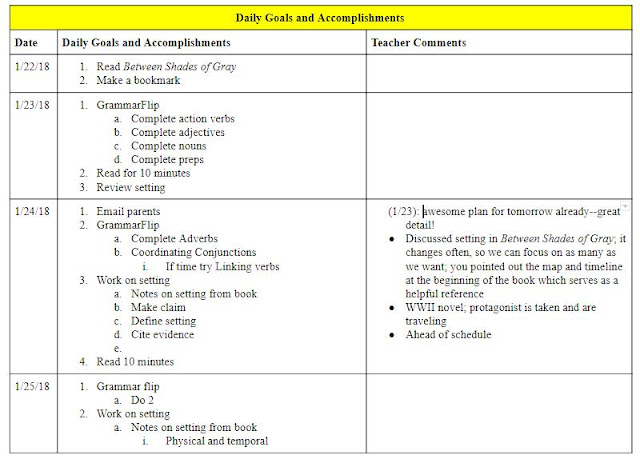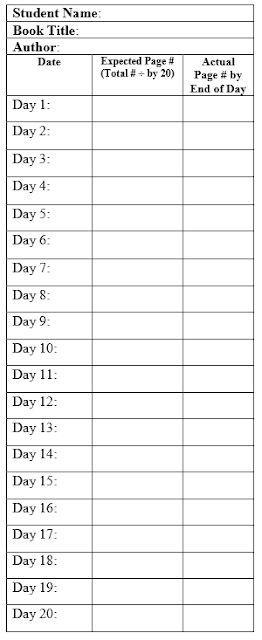Weekly Student-Authored E-mails Home on Progress

Inspired by a blog by Catlin Tucker (@catlin_tucker), I decided to have my students e-mail home every week. Catlin explained how she has students e-mail parents when they fall behind. Since I was shifting to a workshop model, I thought this activity would help include families more as well as keep students engaged with our learning activities. Also, the use of daily work logs ensures we have a record of what we have been doing in class so we have something specific to report on each week. I have done one of these e-mails home so far, but I thought I’d share my early process here. Daily Work Logs As part of our workshop model, I began including a Daily Work Log via Google, where each student lists the assignments and work he or she must complete each day. These work logs become a great resource for the weekly e-mails. This is a process to teach students goal-setting and subdividing larger tasks into smaller pieces (even if they can accomplish multiple pieces in one day dur...
